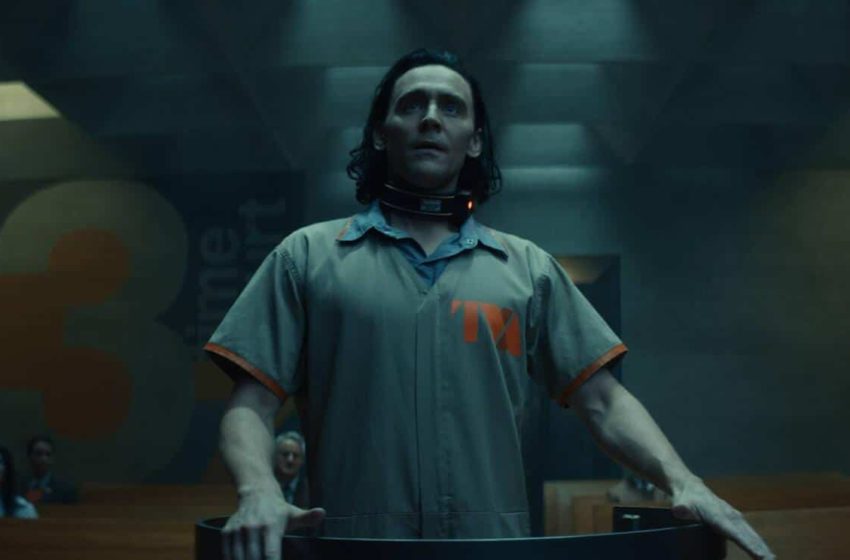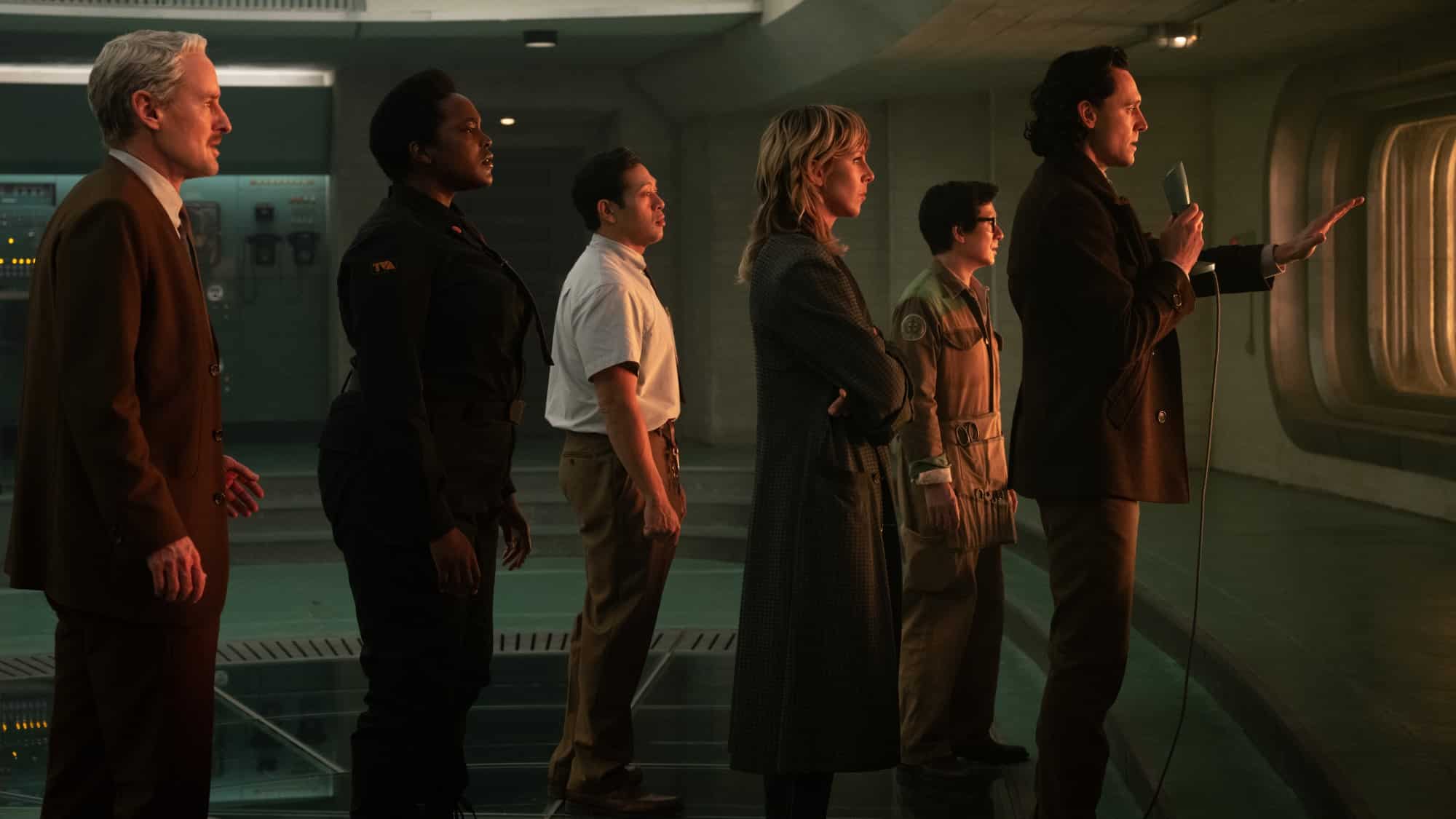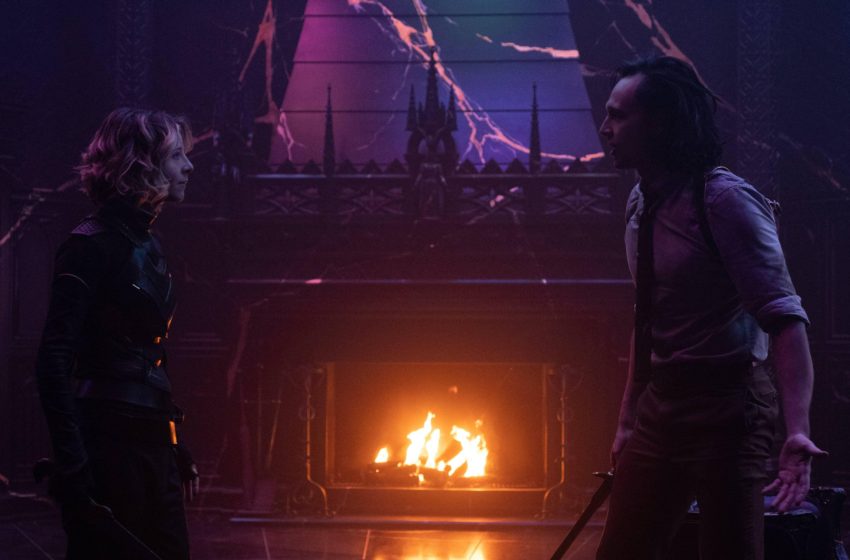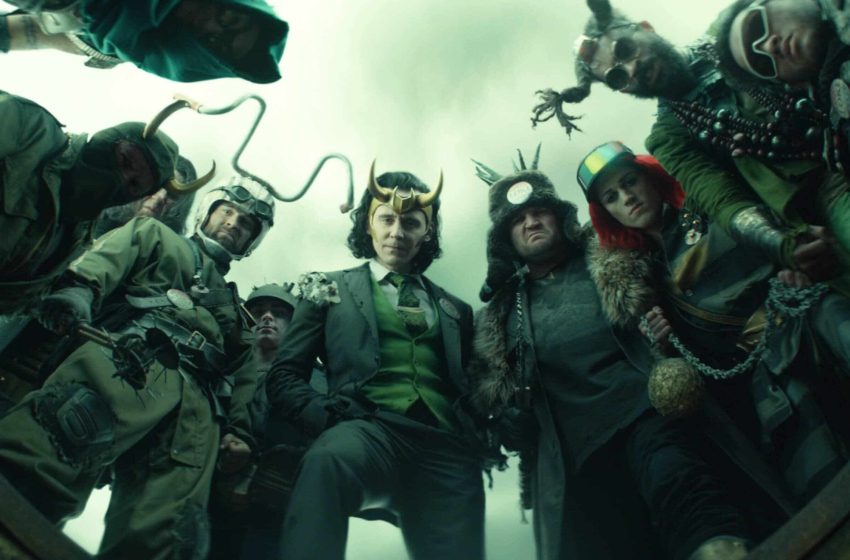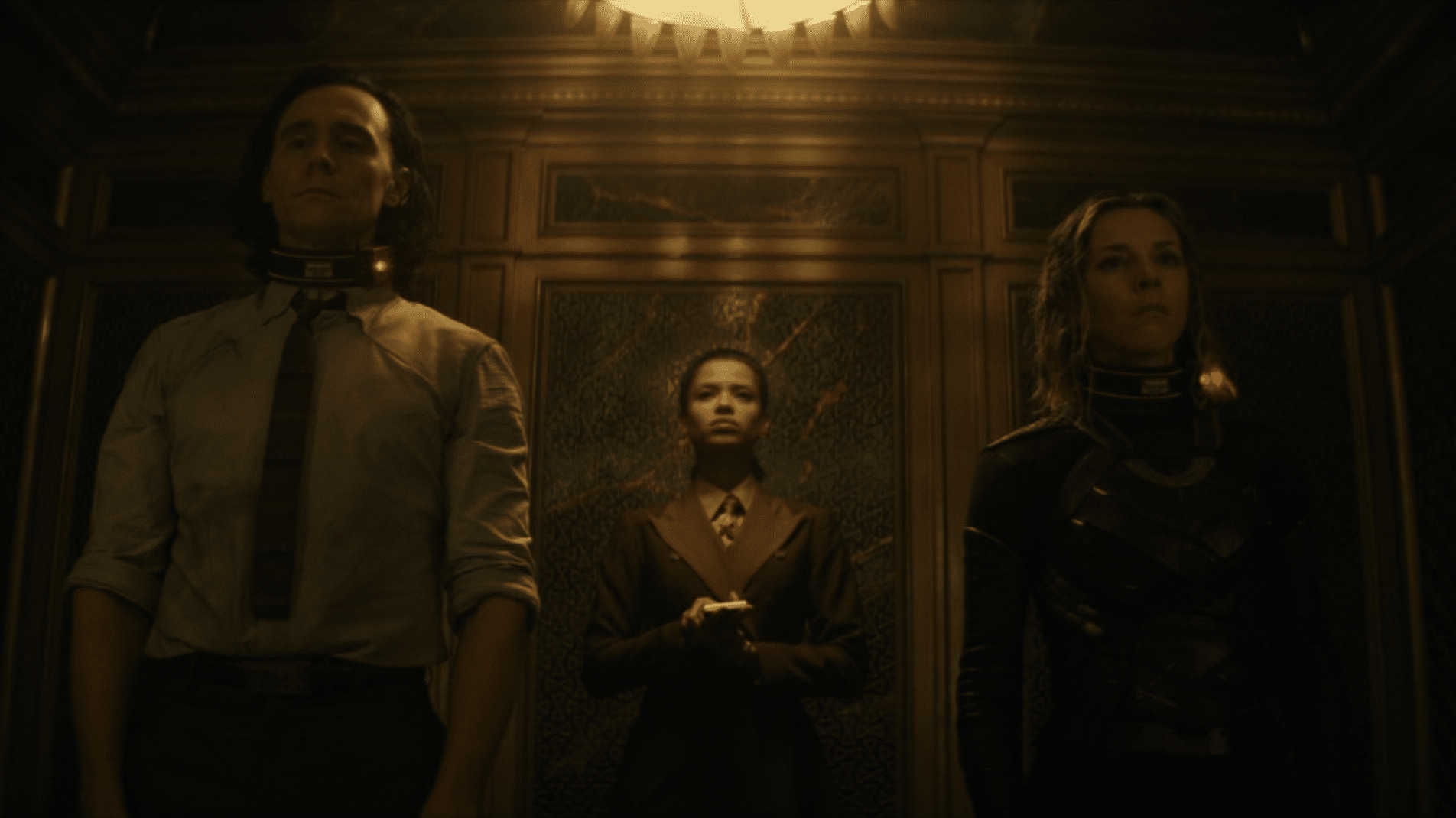Surprising absolutely no one, everyone’s favorite Norse God of Mischief has cheated death once again! Coming straight out of the events of Avengers: Endgame (or just 2012’s Avengers, depending on which timeline you’re counting), a past version of Loki has managed to escape Avengers custody with the Tesseract. Unfortunately, as far as the Time Variance Authority (the TVA) is concerned – no one, not even the gods, can escape their fate.
Armaan Babu: So I, uh, put out the call for a discussion on this first episode, but between writers who’ve already covered this elsewhere, and writers who are a little too busy this week, it looks like I’ll be covering this episode alone, I guess. Let’s di-
Armaan Babu: No fear! You shall not, in fact, be writing this alone! It is I, the Armaan of Earth-9432, dropping in because nobody on my Earth seems to care about my Loki opinions. As a TVA, I’m happy to be joining you and can’t wait to get started, Armaan of Earth-1218!
Armaan-1218: The TVA? You’re part of the Time Variance Authority?!
Armaan-9432: What? Oh, no, I’m merely a Time Varied Armaan. It’s a whole thing, let’s not talk about it – we have a brand new Loki show to talk about!
Armaan-1218: Well, alright then. Let’s dive in!
Who Dictates What’s Supposed to Happen?
Armaan-9432: 1218, this is your home timeline, so tell me – what did you think of the show?
Armaan-1218: I really enjoyed it! I have it on good authority that things get really wild in the series’ next episode, so there’s that to look forward to, but I found a lot to enjoy in Episode 1, ‘Glorious Purpose’. It was a relatively quiet affair – instead of going all out with the kind of chaos the trailer implied, there’s a lot more exposition and setup put into place – laying down the themes that will likely define the show. What did you think?
Armaan-9432: I was a little frustrated by it. I wanted more time travel shenanigans like that D.B. Cooper scene, more chaos – but it looks like that’s going to have to wait. Still, I had fun. I was surprised by how much the 70s-style, bureaucratic setting of the TVA’s offices took precedence. It almost feels like we’re getting the MCU version of a story about a man confined by the dreariness and inevitability of his office job. True to the MCU, it’s a story that both introduces and then immediately undercuts cosmic awe with humor and relatively more grounded science fiction.
To that end, though, the humor is great. Tom Hiddleston brings out both Loki’s constant insecurity and his frustration. He’s a dramatic figure who no one is taking seriously – not the TVA agents, not Mobius, not even the narrative. It’s almost slapstick at times – and then, when you’re least expecting it, the show reveals some unexpected depth that cuts you straight to the heart.
Armaan-1218: So the Loki we see here never got the character development he went through in the latter two Thor movies and Avengers: Infinity War. He’s escaped straight from his capture in 2012’s Avengers, at the height of his world conquering villainy stage. However, even with the Tesseract in hand, he proves to be no match for the TVA, who rapidly manage to render him powerless, contained, his timeline reset, and then quickly processed through an unfair trial that would see him wiped from existence.
Armaan-9432: But that’s not before he is given the official spiel on just what the TVA is, and how they came to be, in delightful animation voiced by the prolific Tara Strong as Miss Minutes. Here’s where things get interesting: unlike our varied timelines, or the multiverse of Marvel Comics, the MCU doesn’t actually have a multiverse – at least not one composed of various different branches of time.
There’s a danger in introducing time travel into a story – or a shared universe. It takes away the freedom of choice. So many time travel stories are about not changing the past, or how that’s something that’s ultimately impossible. You can’t cheat fate. Things need to happen a certain way – no matter what you would choose for yourself. The idea of a multiverse, however, gives people back the freedom of choice that time travel would take away.
Putting aside Dark Dimensions and the mystical planes of existence introduced in Doctor Strange, one of the basic ideas of the Multiverse is this: for every choice that’s made, there is a universe where things happen differently. The universe doesn’t realign to a certain path, you are free to make your choices and live in the universe your choices built. You make a difference.
Armaan-1218: The question is, though, have you really made that choice…or are you an imperfect reflection of some prime version of you, the real version of you? Do you only exist to embody the choice that the Prime You didn’t make – or get to make?
Armaan-9432: As far as the TVA is concerned, it’s a moot point. The seemingly all-powerful Timekeepers aren’t just the founders of the TVA – they’re the ones who have decided on a single timeline. Because of them, there is only one way things can possibly happen – anyone who deviates from the Timekeepers’ version of events is erased from existence, and that timeline reset until things happen the way they’ve dictated it to be. What do you think of having these kinds of science fiction ideas explored with Loki, a character more closely associated with myth and magic?
Armaan-1218: It works for me on so. Many. Levels.
Firstly, as you mentioned before, Marvel tends to keep undercutting its cosmic awe, and when it’s not done with humor it’s done with science fiction, as if that’s a more realistic thing to believe, as if that’s somehow better storytelling. It’s done this right from the very first Thor movie, where Thor explains that Asgard’s so-called “magic” is really a kind of advanced technology. Loki wants to live in a grander world – one of awe, one of wonder, one where his illusions, his lies, his stories, his stage tricks actually have the effect he intends for them. At every turn, his plans, his very gravitas is undermined by the universe he lives in, and now he’s discovered that there’s a reason for that.
2012’s Loki is a Loki who seemed to truly believe that the best thing he could do for humanity is subjugate them. To freedom from the consequences and burdens of choice. Now he’s faced with the TVA, who have managed to do that more effectively than he could have ever hoped, and it chafes. The TVA is everything he wishes he could be – but their methods are everything he’s not. The TVA works as a team. The TVA is boring. Methodical. Practical. They’re an all powerful organization with zero sense of style – and I think that that, more than anything else, is what breaks him.

Armaan-9432: A frustrated Loki is a hilarious Loki – at least until he stops fighting against it. That’s when the truth hits him so hard it hurts, both him and the audience watching.
Who Do You Choose To Be?
Armaan-1218: So I know you wanted more action, more chaos, from this first episode, but what did you think of the interrogation scene between Mobius and Loki?
Armaan-9432: I’m not quite sure what to make of Mobius as a character, but I will say how much I enjoy seeing Owen Wilson on screen again, it’s been a while. He’s a perfect fit for the show – there’s a soft, silly charisma to him, one that’s a perfect foil for Loki’s sharpness. One thing that does interest me is how much he seems to know Loki – which, given the episode’s reveal that he’s hunting down a more dangerous version of Loki, makes a lot of sense in hindsight.
Still, it’s interesting to see how much Mobius’ knowledge of Loki’s personality is just adding insult to injury. Not only has the TVA rendered him powerless, not only has it told him that his choices are an illusion, this agent in front of him is illustrating repeatedly that Loki is predictable – and Mobius isn’t even being malicious about it.

Armaan-1218: I think it’s the perfect choice here – Mobius’ softness gives Loki just enough space for his insecurities to rise to the surface. I’ve watched this scene multiple times, Hiddleston’s performance speaks volumes. It’s clear how much Loki sees himself as weak – and how desperate he is to trick others into thinking he’s not.
This whole conversation about trying to define who Loki is gave me real Journey Into Mystery and Agent of Asgard vibes.
Armaan-9432: You’ll have to fill me in, I’ve never read ‘em.
Armaan-1218: What? What do you mean you’ve never read them?
Armaan-9432: I keep meaning to, but never got ‘round to it.
Armaan-1218: Those were extremely important comics to me! I’ve got Stephanie Hans panel tattooed on my shoulder!
Armaan-9432: Huh. Weird – I got Kyle Rayner.
Armaan-1218: Huh. I suppose I can see that happening. Anyway, to cut some very long stories short, Kieron Gillen and Al Ewing both explored a Loki who was trying to redefine himself. Who was tired of being a predictable God of Mischief and Lies. He went to some…extreme lengths to craft a new version of himself, all to break out of the chains of his reputation. The idea is that gods (read: the fictional characters that make up modern mythology) are defined by their stories – and Loki did everything in his power to try and change the kind of story being told, to finally change himself.
MCU’s Loki is bound in a similar way. He’s someone who’s never been the star of the story – his only purpose has either been to be the fire that forges true heroes, like Thor and the Avengers, or to bring suffering to those he cares for. He’s bound by the fans’ expectations of who he is, and by a cinematic universe that can’t seem to let him grow. On a less meta level, he’s bound by the TVA’s adherence to a single timeline. A timeline where he dies having accomplished precisely none of his grand ambitions.
The story he tried to write for himself – one of “Glorious Purpose” – is not the story he’s allowed to write. We’re not told about the motivations of the version of Loki that’s slaughtering TVA agents, but it’s easy to imagine that it’s a Loki who will stop at nothing to gain control over their own fate.
Armaan-9432: That’s fascinating – so what do you think that means for what we can expect for the episodes to come?
Armaan-1218: Well, despite the efforts of the TVA, we now have three Lokis. The Loki That’s Supposed to Be – the one who finally reconciles with his brother, and who dies in Infinity War. There’s the mysterious Loki That Oughtn’t Be, making a mess of time and refusing to be chained by its constraints. And then we have the Loki That Is – our protagonist, at the start of his journey, who’s still a long way from finding out who he really is. I am looking forward to watching a series about him choosing what version of Loki he will become.
Timely Variant Afterthoughts

- There’s actually comics precedent for Infinity Stones not working outside of their native timelines. Considering how much the MCU tied together Infinity Stones with the working of a single timeline in Endgame, it makes a lot of sense that Infinity Stones brought in from other timelines would be functionally useless.
- While most of the internet was (justifiably) freaking out the blink-and-you’ll-miss-it file confirming Loki’s genderfluidity, another thing of note is that the jurisdictional “Sector” that this Loki is apart of goes from 1990-2099 – a fun nod to Marvel’s most popular future timeline.
- The judge presiding over Loki’s case is Ravonna Renslayer (played by Gugu Mbatha-Raw) – whose first comics appearance had her heavily involved with Marvel’s most prominent time-travelling tyrant: Kang the Conqueror. Kang’s all set to make his first film appearance in the next Ant-Man movie, here’s hoping Ravonna returns!
Armaan is obsessed with the way stories are told. From video games to theater, TTRPGs to comics, he has written for, and about, them all. He will not stop, actually; believe us, we've tried.

